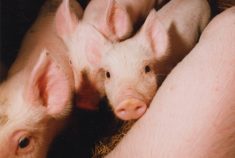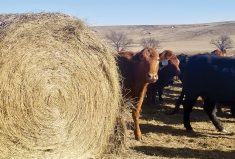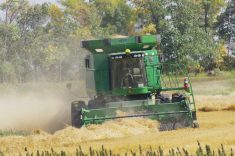It’s not just producers — companies, syndicates, or even offshore investors all want to own Manitoba soil
Farmland values are continuing to rise in Manitoba, as people and corporations seek out fertile ground for investment in a fragile economy.
“People don’t know what to do with money and that’s part of the problem,” said Grant Tweed, a Century 21 realtor specializing in farmland.
With low interest rates and unstable markets, Tweed said people see farmland as a safe alternative to traditional investments.
“They are looking for a good solid place to invest, and they don’t necessarily care if they get high returns, as long as it’s secure,” said the Brandon-based professional.
Read Also

Mazergroup’s Bob Mazer dies
Mazergroup’s Bob Mazer, who helped grow his family’s company into a string of farm equipment dealerships and the main dealer for New Holland machinery in Saskatchewan and Manitoba, died July 6 from cancer.
The result is more buyers than sellers. Not all of those in the market for farmland are producers —some are companies, syndicates, or even offshore investors.
“The global desire to ‘bury money in the ground’ is not without merit,” said Gurinder Sandhu, an executive vice-president with Re/Max.
But rising prices and demand haven’t enticed many farmers to sell their land, and many expansion-minded producers are also in the market, he said.
These factors are at play across the country. Some areas in Ontario are seeing average prices reach $18,000 per acre, according to Re/Max’s annual market trends report, while the average in southwest Manitoba is now running between $1,200 and $1,500 an acre.
But Tweed said he’s sold potato land in Manitoba for close to $6,000 an acre.
“Five thousand dollars an acre is not uncommon, and I’m sure you can get $6,000 in the right area,” he said.
But the spike isn’t occurring across the board — good cropland, not pasture land is what people are after, Tweed said.
“Just regular good-quality land that will grow wheat, barley, oats, canola, sunflowers, your general crops that we relate to in Manitoba, used to go for $1,000 an acre” but is now fetching $2,000 to $3,000, he said.
Some areas have seen a 50 per cent rise in the last year alone, he said.
Most of the most eye-popping deals are in the south.
“There are people out there looking for land and if they find what they’re looking for, they have a willingness to go far beyond what we thought was a normal price,” said the realtor.
But compared to prices in Alberta or Ontario, Manitoba dirt is still considered affordable, and is attracting producers from other regions looking for a place they can settle and expand their operations.
Tweed said the situation is some parts of Canada is similar to Europe, where farm expansion is all but impossible. And there are no signs of the market cooling off.
Currently, there are restrictions on foreign land ownership in Manitoba, but Tweed said if those restrictions were lifted, prices would soar even further.
“I’ve been in this business for quite a while,” said Tweed. “And I always thought I had a pretty good read on it, but this has been well beyond my expectations.”


















